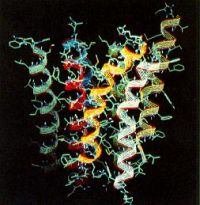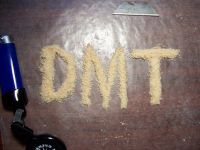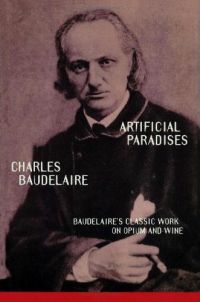Legal high madness in Poland comes to a sudden end. Polish lawmakers passed an "emergency bill" today that bans sale and production of all psychoactive substances unless they fall under different regulations. This means that all designer drugs and those legal highs that actually work are banned. This comes less than a week after the legal highs shops were shut down.
The new law which bans the production and sales of so called psychoactive substances was passes with an overwhelming majority of 400 votes for with three against and three abstaining.
The emergency bill also includes tighter definitions on the drugs in respect to their effect, not the drugs' ingredients.
The draft introduces a regulation allowing inspectors to close down premises where the drug is sold or produced providing the product does not fall under different regulations.
This is to ensure that inspectors do not ban sales of alcohol or tobacco products, which are controlled by different regulations.
 |
Scientists from The Scripps Research Institute have figured out the pathway serotonin uses to mediate biological functions. They discovered that it is distinct from the signaling pathways used by hallucinogenic substances.
The study is published in the October 6 issue of the Journal of Neuroscience. The paper is titled "Serotonin, But Not N-Methyltryptamines, Activates the Serotonin 2A Receptor via an Arrestin2/Src/Akt Signaling Complex in Vivo."
Dr. Bohn and her team showed that serotonin signals through the serotonin 2A receptor by recruiting a regulatory protein called arrestin2. They found that the actions of serotonin at the receptor are far different from those produced by hallucinogenic N-methyltryptamines, a class of naturally occurring substances found in several plants and in minute amounts in the human body and includes the abused drug DMT. The study found that the N-methyltryptamines activate the serotonin 2A receptor independently of arrestin2.
The 5-HT2A receptor is a G-protein coupled receptor (GPCR). Here's a brief bit on arrestin's role in cellular signaling from WikiPedia:
In response to a stimulus, GPCRs activate heterotrimeric G proteins. In order to turn off this response, or adapt to a persistent stimulus, activated receptors need to be silenced. The first step is phosphorylation by a class of serine/threonine kinases called G protein coupled receptor kinases (GRKs). GRK phosphorylation specifically prepares the activated receptor for arrestin binding. Arrestin binding to the receptor blocks further G protein-mediated signaling, targets receptor for internalization, and redirects signaling to alternative G protein-independent pathways.
So as far as I can tell, this means that hallucinogens are likely more potent agonists at the 2A receptor than 5-HT itself, because they do not recruit arrestin to mediate the duration of the resulting G-protein signal cascade? Anyone else want to jump in here with speculation?
[Thanks Tomas!]
 |
Wishful thinking? Maybe not, given the size of this latest bust.
A brain-bending jungle drug is set to become a bigger menace than crystal meth on Britain's streets, it was feared last night.
Border guards have intercepted a record 13 million British pounds sterling haul of DMT - a powerful hallucinogen used by Amazon tribes.
Smokers of the crystals almost immediately suffer intense and often terrifying visions.
Side-effects include paranoia and flashbacks weeks or months later.
The Class-A drug has also been linked to schizophrenia.
It is feared smugglers are now trying to flood the UK - as they have in recent years with deadly methamphetamine, also known as crystal meth.
A senior police source said: "We've never seen quantities of DMT like this. This is clearly the latest drug trend. Dealers have seen big money to be made here."
The UK Border Agency recently intercepted 126 kilos of DMT being smuggled into Britain in 15 parcels from Brazil and Peru. Five found at the postal depot at Coventry Airport were heading for London.
[Thanks Tomas!]
[Editors Note: This story appears to be a tabloid fabrication. No other news articles can be found to support the Sun's claims.]
This news comes one week after the post Legal high madness in Poland.
The Polish government announced Monday that it has shut down around a thousand stores that sold newly-emerging synthetic drugs, such as mephedrone and preparations containing synthetic cannabinoids (marketed under names like Spice and K2 in the US). It is also moving to amend its drug laws to cover such substances.
"The state will not flinch when it comes to using all legal means available in the struggle against these substances," Justice Minister Krzysztof Kwiatkowski told reporters Monday. "This is going to be a long and difficult fight because our opponent is extremely well-prepared, rich and determined," said Kwiatkowski.
The synthetic drugs have made headlines in Poland in recent weeks, with several users being hospitalized. There have also been a handful of deaths that have been attributed to the synthetics, though the actual connection between use of the substances and the deaths remains unclear.
In an operation beginning last week, police and health inspectors sealed the doors of stores selling the drugs. But that was just the beginning, Kwiatkowski said. He said the government would enact legislation to plug loopholes in the existing drug law, including adding a three-year prison sentence for anyone who supplies minors with a substance posing a risk to their health or life. Another proposed amendment would allow health inspectors to pull from the shelves for up to 18 months any substance suspected of being harmful.
It won't be without a fight. The owner of a chain of shops selling the new synthetics told the newspaper Polska he planned to sue over the state's closure of his shops.
[Thanks Tomas!]
 |
Getting stoned 1840s style:
The 1821 publication of Thomas de Quincey's 'Confessions of an English Opium Eater' was a watershed event, injecting into the Romantic era a commentary on what opium addiction actually involved, its effects on the mind, body and spirit, and effectively establishing the genre of drug literature as we know it today. The phenomenon of narcotic fancy was an integral part of the Romantic mindset, best exemplified by Colleridge's opium-inspired epic poem 'Kubla Khan', and poets of the next generation over in France, notably Theophile Gautier and Charles Baudelaire, caught the vibes. In the 1840s, these two were members of the 'Club des Hashischins', a loose group of artists and writers who gathered in the Hotel Pimodan in Paris in order to partake of cannabis orally in what we would now describe as 'heroic doses'. Of western countries at that time, France was the best acquainted with cannabis, due to its invasion of Egypt in the Napoleonic era and the subsequent interest in and importation of the drug by its soldiery. These poets would now put cannabis on the drug-lit map, alongside opium and its derivative laudanum.
When it hit the streets here last week, the latest issue of ReLeaf, a pullout supplement to The Colorado Springs Independent devoted to medical marijuana, landed with a satisfying thud.
Forty-eight pages in all, it was stuffed with advertisements for businesses with names like Mile High Mike's, Happy Buddah and the Healthy Connections (which enticed potential customers with promises of "naughty nurses" to tend to patients’ needs).
A full-page ad in ReLeaf costs about $1,100, making the publication a cash cow for The Independent, which has used its bounty from medical marijuana ads this year to hire one new reporter and promote three staff members to full time.
The paper has also added a column called CannaBiz that follows news from across the country; its author is the new marijuana beat writer.
What would happen in the many communities now allowing medical marijuana had been a subject of much hand-wringing. But few predicted this: that it would be a boon for local newspapers looking for ways to cope with the effects of the recession and the flight of advertising -- especially classified listings -- to Web sites like Craigslist.
But in states like Colorado, California and Montana where use of the drug for health purposes is legal, newspapers -- particularly alternative weeklies -- have rushed to woo marijuana providers. Many of these enterprises are flush with cash and eager to get the word out about their fledgling businesses.
[Thanks Sam Hell!]
 | | 2C-I |
Charles Shaw takes a close look at the social impact of some of Shulgin's brightest babies: The 2C phenethylamines.
How is it that a purportedly legal substance (or at the very least, one that is not explicitly illegal) garners a felony bust? Perhaps we should begin by taking a look at the mysterious compound that caused all the trouble.
2C-I (or 2,5-dimethoxy-4-iodophenethylamine) belongs to a family of twenty-nine "2C" compounds which include the more notable 2C-B, 2C-E, and 2C-T-7 that are designated Schedule 1 or "dangerous with a high abuse potential and no known or accepted medicinal applications." All of these compounds were invented ("synthesized" is how the chemists put it) by Shulgin.
Of course, that's just the government talking, so you know where to rank their opinion. They say the same thing about marijuana, LSD, peyote, psilocybin, and DMT, none of which are addictive in the strict sense of the word, even though arguably marijuana can and does produce some "psychological dependency." As to whether any of these substances are dangerous, well, that's really all in how you define "dangerous."
More news on the difference between 'skunk' weed and regular marijuana.
Some particular forms of cannabis may contain an ingredient that helps to diminish the drug's negative effects on memory, a new study has suggested.
The new study has revealed that the strain of cannabis makes all the difference, reports Nature.
In a test of short-term memory skills, only users of 'skunk'-type strains exhibited impaired recall when intoxicated, whereas people who smoked hashish or herbal cannabis blends performed equally well whether they were stoned or sober.
The findings suggest that an ingredient more plentiful in some types of marijuana than in others may help to reduce the memory loss that some users suffer.
The key difference between the types of cannabis is the ratio of two chemicals found in all strains. Tetrahydrocannabinol (THC) is the primary active ingredient and the second chemical, cannabidiol.
Valerie Curran of the University College London who led the latest study, said that if habitual users must partake they should be encouraged to use strains with higher levels of cannabidiol, rather than using skunk.
Researchers had been suspecting that any effects of the drug on mental health could be a result of an increased ratio of THC to cannabidiol in cannabis, because levels of cannabidiol have not kept pace with rising THC concentrations.
To test this hypothesis, Curran and her colleagues travelled to the homes of 134 volunteers, where the subjects got high on their own supply before completing a battery of psychological tests designed to measure anxiety, memory recall and other factors such as verbal fluency when both sober and stoned.
The researchers then took a portion of the stash back to their laboratory to test how much THC and cannabidiol it contained.
The subjects were divided into groups of high (samples containing more than 0.75 percent cannabidiol) and low (less than 0.14 percent) cannabidiol exposure, and the data were filtered so that their THC levels were constant.
Analysis showed that participants who had smoked cannabis low in cannabidiol were significantly worse at recalling text than they were when not intoxicated. Those who smoked cannabis high in cannabidiol showed no such impairment.
The results suggested that cannabidiol could mitigate THC's interference with memory formation.
[Thanks Wouldpkr!]
It's no secret that weed is a big agricultural business, so it's only natural that it's made it to the next stop on its way to a full capitalist makeover: mass production.
The video below is an exclusive look at what could be the country's first official cannabis factory, a 60,000 sq. ft. facility in Oakland that would house 30,000 plants and could produce $50 million of cannabis per year. Part of a proposal by Gropech, a non-profit that promises to create hundreds of union jobs and reinvest profits in the Bay Area if given a permit by the Oakland City Council, the facility would supply medical dispensaries across the state in an attempt to bring transparency to the growing process. "The laws in California were sort of backward because they addressed retail sales before wholesale production," said Derek Peterson, co-founder of Gropech. "It would be like if you built a bunch of liquor stores, and only afterward built distilleries."
[Thanks Wouldpkr!]
 |
Originally published in Welsh, in 2008, 'Operation Julie' by Lyn Ebenezer looks at what is arguably the most famous UK police drug operation in history. This English edition was published in 2010 and has the novel advantage of being the first book exclusively on Operation Julie not to be written by one of the policeman involved. However, as we shall see, this is still a collection of threads that are primarily woven together by the police operation itself.
In March 1977, after over a year of surveillance and intelligence gathering, the Operation Julie taskforce, which included officers from eleven different police forces, swooped on their targets. What they believed they'd found was a vast LSD manufacturing, packaging and distribution service, but which in fact turned out to be two, still large but different operations co-existing in Britain. Coupled with a furious media frenzy, which lavished praise on the officers and demonised the defendants, Operation Julie became something of a triumph for the police force within the public arena.
|

Recently @ DoseNation
|
|















